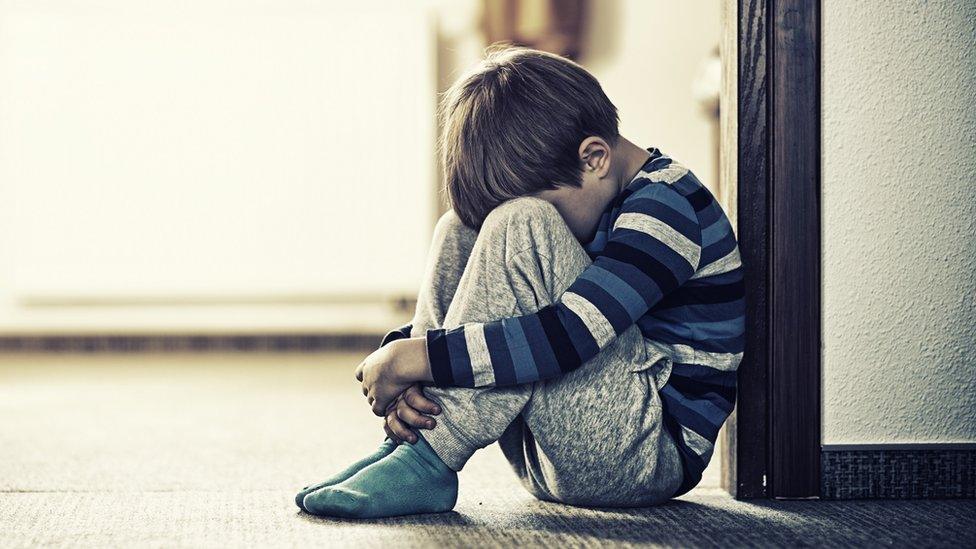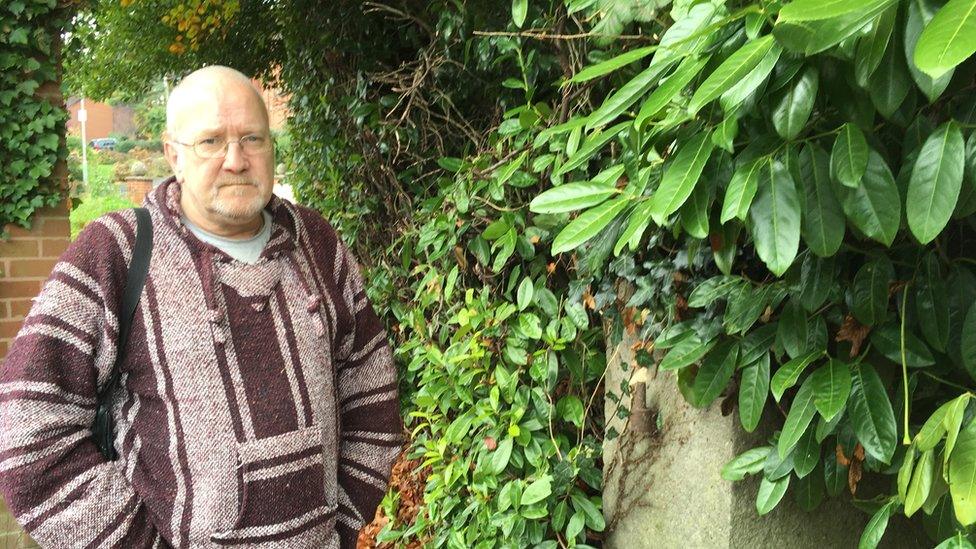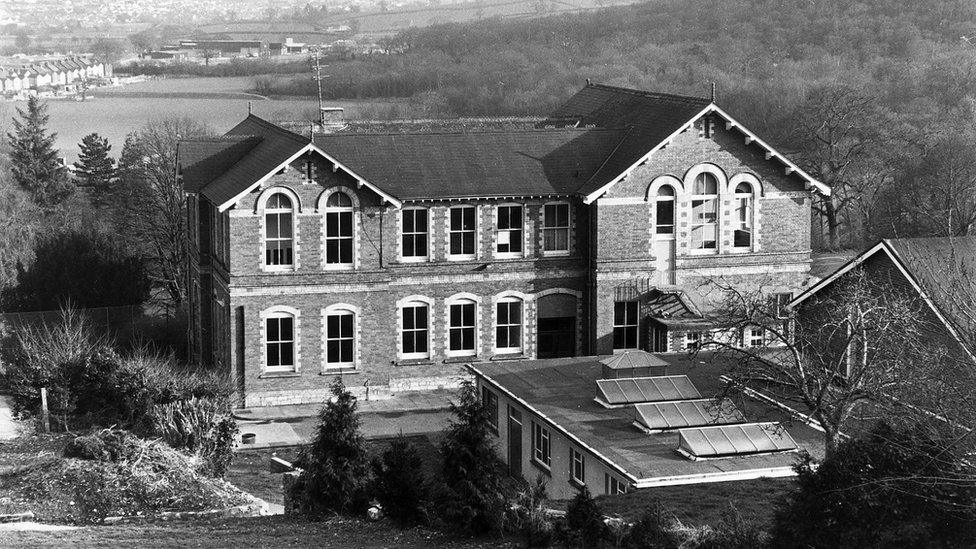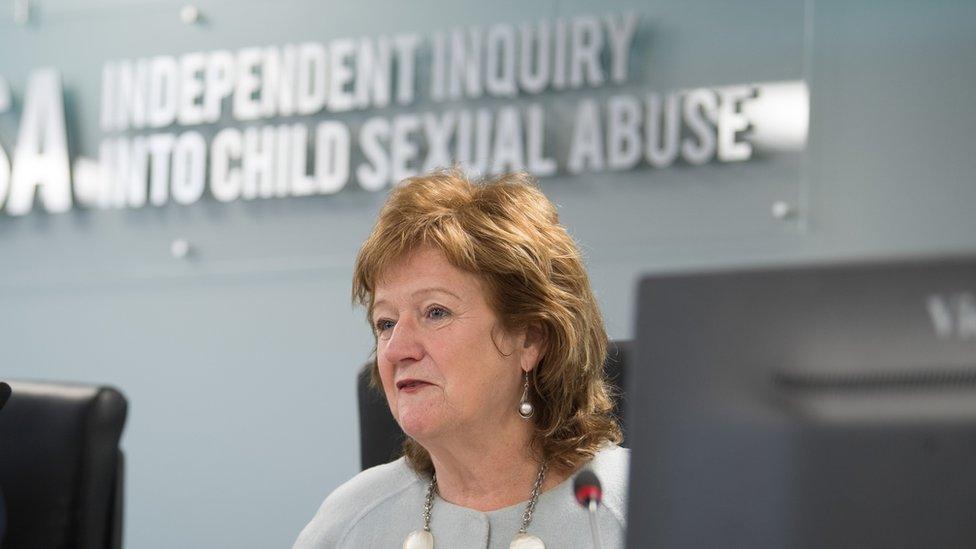Child sex abuse inquiry: Victims with criminal records denied compensation
- Published

The inquiry said "the suffering does not stop when the abuse ends"
Survivors of sexual abuse in care homes are denied compensation or have payouts cut because of their own criminal convictions, an inquiry has found.
The Independent Inquiry on Child Sexual Abuse (IICSA) heard how one boy stole jewellery to survive after running away from an abusive care home.
It meant his compensation years later was cut in half.
The compensation scheme should recognise abuse can directly contribute to offending, the inquiry said.
It found that the criminal and civil justice systems are unable to provide redress for victims of abuse, often leaving them "retraumatised" and missing out on compensation.
"For victims and survivors of child sexual abuse, the suffering does not stop when the abuse ends. In our investigation we found that the criminal and civil court proceedings for redress can be frustrating, hostile and ultimately futile," said Professor Alexis Jay, chair of the inquiry.
"Many are left retraumatised and deeply unsatisfied with the often lengthy and confusing litigation."
Among the issues the inquiry identified was that the Criminal Injuries Compensation Authority (CICA) can deny or reduce claims if a victim has unspent criminal convictions.
The inquiry said the CICA used to have discretion to make full or reduced awards to people with certain criminal convictions, but that was removed in 2012 because the government believed publicly funded schemes should not benefit ex-offenders.
One man, abused as a child by two men at residential schools in the north-west of England, saw a payout of £12,000 reduced by half because of his own criminal record.
He told the inquiry he had run away from the abuse and stole jewellery from a travelling family because he "needed to survive".

Paul Sinclair told the inquiry: "Children who are abused in care often go on to offend because of the abuse"
Paul Sinclair, a survivor of abuse at Forde Park Approved School in Devon, said he did not apply for compensation because of the rule on criminal records.
"I believe that children who are abused in care often go on to offend because of the abuse that they suffered," he said.
Another victim said his claim was refused. "I couldn't understand how I could be denied compensation when the things they used against me were as a result of what he had done to me," he said.

Eight men were convicted of crimes at Forde Park School in Devon during the 1960s and 1970s
The Ministry of Justice has launched a review into the criminal compensation system, and the inquiry said the rules should be changed so applications are not automatically rejected when victims' criminal records are likely to be linked to their abuse.
The inquiry also said:
Police need to be proactive and consistent about informing victims of their rights to compensation
The three-year time limit on victims bringing claims for compensation in the civil courts may need to be extended
Damages awarded to claimants should take greater account of the physical, emotional and psychiatric injuries, along with the impact on their long-term quality of life
Survivors of child sexual abuse should get the same protections in civil courts as vulnerable witnesses do in criminal cases
The Ministry of Justice should consider ways to increase criminal compensation orders - where offenders are ordered to pay money to victims as part of their sentence - in abuse cases
This report, on accountability and reparations, is one of 14 investigations being conducted by the ongoing inquiry. It heard from 38 witnesses including insurance brokers, lawyers, police officers and victims and survivors.
It focused on five key case studies of abuse from the 1960s to the present day: North Wales children's homes, Forde Park school in Devon, St Leonard's children's home in London, St Aidan's and St Vincent's children's homes in Cheshire and Merseyside, as well as Stanhope Castle school in County Durham.
- Published31 July 2019

- Published6 October 2020
